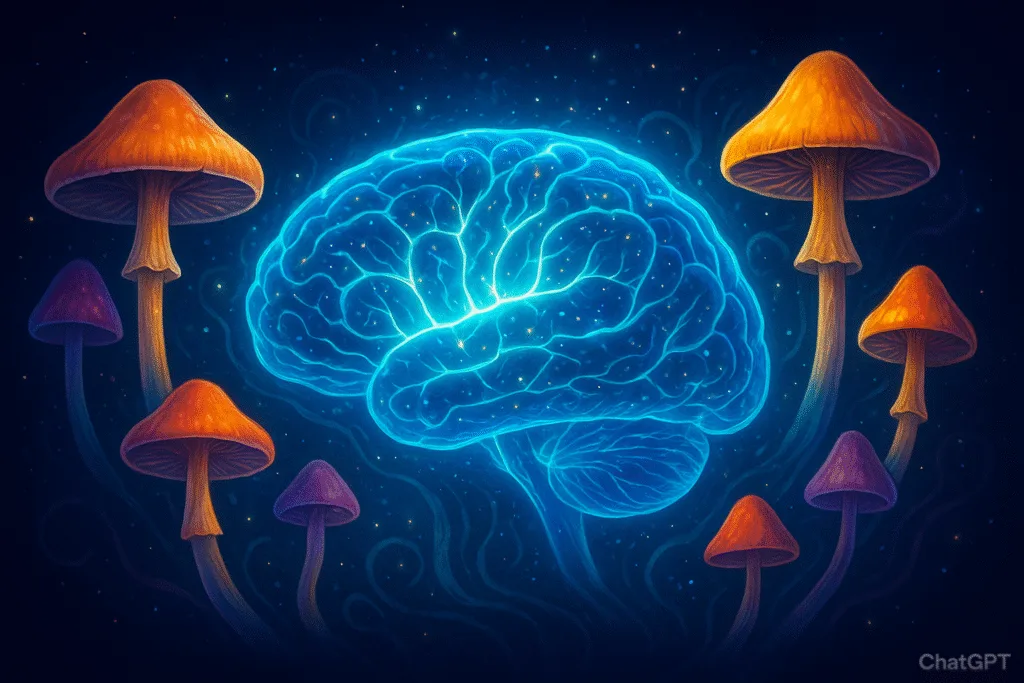No products in the cart.
Uncategorized
Magic Mushrooms for Depression and Anxiety: What U.S. Science Says
Introduction
Across the United States, more people are exploring new approaches to mental health. With millions struggling from depression and anxiety, traditional treatments don’t always provide relief. This has led scientists, therapists, and patients to take a closer look at psilocybin—the active compound in magic mushrooms.
In recent years, U.S. research on psilocybin mushrooms has grown rapidly. Early results suggest these natural psychedelics could transform how we understand and treat mental health conditions. Let’s explore what American science is revealing about the role of magic mushrooms in treating depression and anxiety.
What Are Psilocybin Magic Mushrooms?
Magic mushrooms are fungi that contain psilocybin, a naturally occurring psychedelic compound. When consumed, psilocybin interacts with serotonin receptors in the brain, altering perception, mood, and cognition.
While magic mushrooms have been used in spiritual and cultural traditions for centuries, modern research is focused on their potential therapeutic benefits. In the U.S., the conversation has shifted from recreational use to medical research and clinical applications.
The U.S. Mental Health Crisis and New Treatments
Depression and anxiety are two of the most common mental health disorders in America. According to the National Institute of Mental Health (NIMH), more than 21 million adults in the U.S. experienced at least one major depressive episode in 2023. Anxiety disorders affect an estimated 40 million adults every year.
Unfortunately, conventional treatments like antidepressants or talk therapy don’t always work. Many people struggle with treatment-resistant depression. That’s why researchers are turning to psilocybin therapy as a possible breakthrough for patients who need new options.
What U.S. Science Says About Psilocybin for Depression
Research from leading American institutions such as Johns Hopkins University, NYU, and UCSF has produced groundbreaking results:
- Clinical trials show that a single dose of psilocybin, combined with therapy, can significantly reduce symptoms of depression.
- Some participants reported improvements lasting weeks to months after treatment.
- Psilocybin may help the brain “rewire” itself by increasing neuroplasticity—the ability to form new neural connections.
For those suffering from treatment-resistant depression, psilocybin therapy is emerging as one of the most promising alternatives being studied in the U.S. today.
What U.S. Science Says About Psilocybin for Anxiety
Anxiety disorders are another area where psilocybin is showing promise. Research in the U.S. has found:
- Psilocybin can reduce anxiety in patients facing terminal illness, helping them cope with existential distress.
- Clinical trials suggest that the sense of connectedness and peace brought on by psilocybin plays a key role in reducing anxiety symptoms.
- Unlike conventional anti-anxiety medications, psilocybin may provide relief without daily dosing.
This has sparked growing interest in using psilocybin to support individuals with generalized anxiety disorder, social anxiety, and end-of-life anxiety.
Microdosing vs. Full Doses
In America, two approaches to psilocybin use are being widely discussed:
- Microdosing – Taking very small amounts of psilocybin, often below the threshold for hallucinations. Advocates report improved mood, focus, and creativity.
- Therapeutic Doses – Higher doses taken under medical supervision, usually combined with psychotherapy. These sessions can lead to deep emotional breakthroughs.
While microdosing is popular in U.S. wellness communities, most scientific research supports full-dose, supervised therapy sessions as the most effective method for treating depression and anxiety.
Is Psilocybin Legal in the U.S.?
At the federal level, psilocybin remains a Schedule I controlled substance, making it illegal nationwide. However, the landscape is changing:
- Oregon has legalized psilocybin therapy under strict regulations.
- Colorado has decriminalized psilocybin and is exploring therapeutic use.
- Cities like Denver, Oakland, and Seattle have also moved to decriminalize personal possession.
As clinical trials continue, experts predict that psilocybin therapy could gain FDA approval within the next decade, potentially transforming American mental health care.
Risks and Safety Considerations
While psilocybin shows promise, it is not risk-free. Potential concerns include:
- Challenging psychological experiences (sometimes called “bad trips”).
- Risk of triggering underlying mental health conditions such as schizophrenia.
- Legal consequences outside of decriminalized or therapeutic settings.
For safety, experts recommend psilocybin be used only in supervised environments, with proper preparation, guidance, and integration support.
The Future of Psilocybin Therapy in America
Momentum is building in the U.S. for broader acceptance of psilocybin as a mental health tool. With strong research results, growing public support, and changing laws, magic mushrooms may soon play a central role in treating depression and anxiety.
Many experts believe psilocybin-assisted therapy could revolutionize American psychiatry—providing new hope to millions struggling with mental illness.
FAQs on Magic Mushrooms and Mental Health in the U.S.
Q1: Are magic mushrooms legal for depression treatment in the U.S.?
Not yet at the federal level. However, Oregon and Colorado are leading the way with new psilocybin programs.
Q2: How effective is psilocybin for anxiety?
Studies show significant improvements, especially in patients with end-of-life anxiety or treatment-resistant anxiety disorders.
Q3: Where are psilocybin clinical trials happening in the USA?
Major trials are being conducted at Johns Hopkins University, NYU, UCSF, and other research centers.
Q4: Can you microdose legally in America?
Not under current federal law. Microdosing remains illegal except in regulated states or research studies.
Q5: Is psilocybin safe for everyone?
No. People with certain psychiatric conditions should avoid it. Safe use requires medical guidance and supervision.
Conclusion
The U.S. is at the forefront of groundbreaking research into psilocybin magic mushrooms for depression and anxiety. While challenges remain around legality and safety, science shows enormous potential for psilocybin to reshape mental health treatment.
As more studies are published and laws evolve, magic mushrooms may offer new hope to millions of Americans seeking relief from depression and anxiety.

